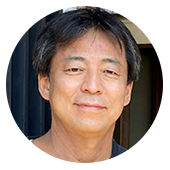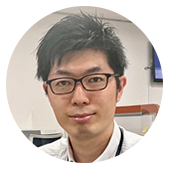Danjo's temple
Saiko-Zenji temple is on a hillside in northern Hiroshima Prefecture. It was built in 1469 and has a more understated design than some of the more famous temples of the era.
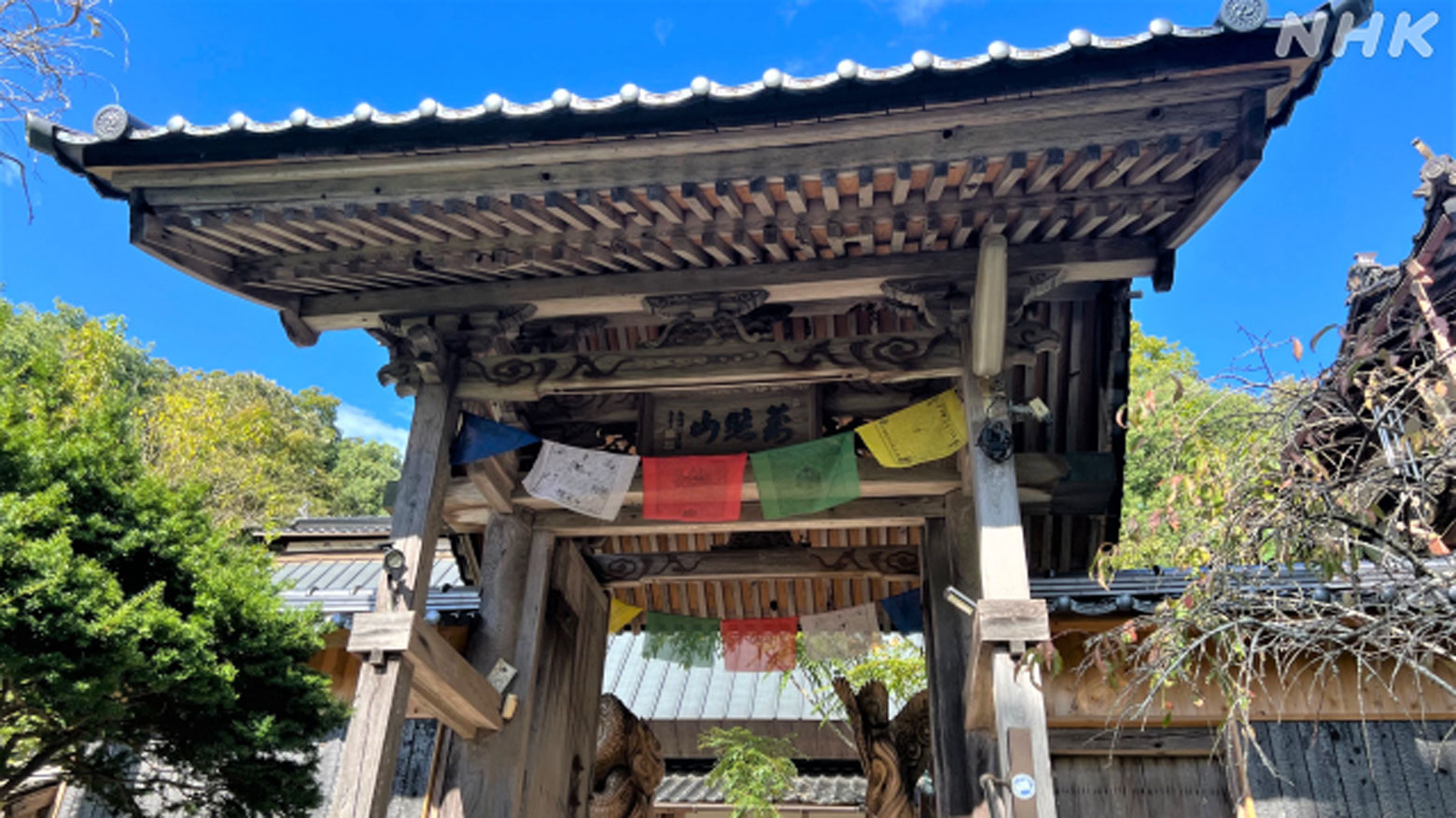
When Danjo Soken became the chief priest here around 20 years ago, his first task was to restore the temple's appearance. The temple had fallen into disrepair in the years following the death of the previous chief priest.
Danjo overhauled the design by introducing a style of landscaping that adhered to the ideological tenets of Zen Buddhism. As a result, the temple grounds now receive particularly close attention. This is evident in the appearance of the garden, which has been named Kegon-no-niwa (lit. Garden of Flower Ornament Sutra). Stones are arranged to resemble constellations, like the Big Dipper.

"I wanted to express the universal outlook of the plants, insects, and all other forms of life reside that reside here," Danjo says. "It's an invitation to feel the vastness of the universe."

A fateful meeting
Before moving to Saiko-Zenji, Danjo worked at a different temple in Hiroshima Prefecture that catered to foreign visitors. He remembers the day, over 25 years ago now, when a lanky man wearing shorts arrived with a suitcase, saying he wanted to meditate in the Zen style. Danjo thought he looked like a hippie.
The man introduced himself as Svante Paabo from Sweden. They started talking and immediately hit it off. They learned they were just one year apart in age and that Danjo had studied at UC Berkeley, a university in the US where Paabo had once done research.
Paabo explained the nature of his studies. Danjo was fascinated and thought the subject matter was relevant to his own work.
"Dr. Paabo's research involves understanding human history by studying genetics," he says. "My understanding of Buddhism is that human lives are connected through fate. I found it interesting that he was trying to explore how this was true with genetics."
They have been friends ever since. Paabo stays at Saiko-Zenji whenever he visits Japan, saying he prefers the temple to a hotel.
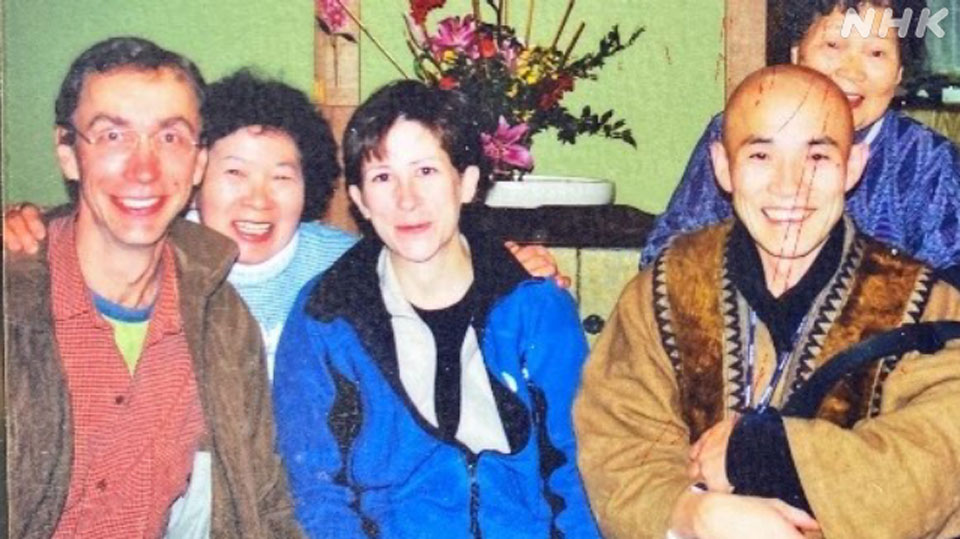
A mountain reprieve
Paabo's work focuses on using DNA to understand the history of the human species. For decades, he tried to extract genetic data from bones so he could map out the Neanderthal genome. He finally succeeded in 2010, using DNA from bones that were 40,000 years old.
His findings proved that the modern human -- Homo Sapiens -- inherited a portion of its genes from Neanderthals, meaning interspecies breeding was highly likely.
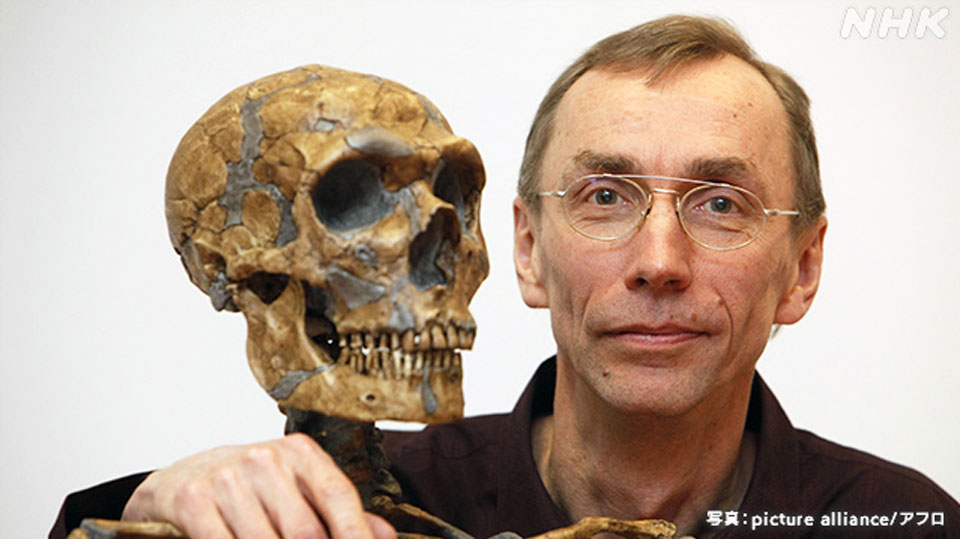
When Paabo started his research in the 1980s, the technological standard for DNA extraction was not as high as it is now. Taking DNA from bones tens of thousands of years old and sequencing the genomic data was considered nearly impossible.
Contamination from human DNA added to the challenge. Even the smallest amount of sweat or a skin fragment falling from a researcher's head during the excavation process could ruin a sample. Paabo and his team were able to use the first-ever clean room designed for DNA analysis and yet they still struggled to get results.
It was during this time of frustration that Paabo started visiting the temple.
Danjo says even though Paabo was ostensibly on vacation, he always led a disciplined life. The scientist would wake up at the same time every morning and immediately start meditating. He spent his days in quiet contemplation, looking at the garden instead of reading books or documents for his research.
Impressed by his commitment, Danjo one day asked Paabo if he was thinking about converting to Buddhism. Paabo answered that he was not, because he was a scientist.
He once told Danjo, "When humans center themselves, they become prideful. They can even cause wars because of this. If I become prideful, I couldn't finish my research. Humans are essentially one part of nature. I want to be the kind of scientist that can understand the feelings of flowers, birds, and even rocks."

Paabo has since written at length about the anxiety he faced while conducting his research. The pressure to find funding, to socialize at academic conferences, to negotiate the rights for bones -- it was almost too much for him and there were days when he wanted to escape.
The serenity and peace of mind offered by Zen Buddhism may have been exactly what he needed.
To Danjo, Zen means taking a step back and realizing the importance of finding your "inner self."
He would often tell visitors of the temple to find a rock that they like from the garden.
"They all find something they like about that rock," he says. "That's what I believe Zen is. 'This is my favorite,' or 'this is me.' When they realize that, that's when the real them comes out."
'I'm looking for a place to write'
In February 2013, three years after he decoded the Neanderthal DNA, Paabo called Danjo and asked for a favor. He was writing a book about his research and wanted to work on it at the temple. Danjo told his friend to come right away.
Paabo wrote in the same spot every day: a detached first-floor room on the east side of the main temple, with windows facing the garden. Even though the book kept him busy, he continued to meditate three times a day, take morning walks, and hike the surrounding areas.
He also received calls and emails about ongoing research he was involved in. Sometimes the lack of progress would leave him distressed. When this happened, Danjo would take him on drives to the nearest town. They would visit coffee shops and antique stores.
Danjo would try to cheer his friend up by telling him he would one day win the Nobel Prize. Paabo always replied that he wasn't interested.

Two years later, he published Neanderthal Man: In Search of Lost Genomes. The preface includes the following note:
"Souken Danjo provided hospitality in Saikouji for some of the time I needed to withdraw from the world."
A copy Paabo sent to Danjo also includes a handwritten message:
"Thank you for being a part of my life!"
The Nobel Prize
In 2020, Paabo was given the Japan Prize, a prestigious award for researchers who have made significant contributions to science and technology. The ceremony was held in April 2022, after a two-year delay due to the coronavirus pandemic.
The venue was full of scientists in suits and dresses, and one man in monk's robes. Most recipients had invited their colleagues and family members; Paabo had invited Danjo.

On the morning of the ceremony, the pair spent an hour meditating together at a park. Afterward, they had breakfast and Danjo told Paabo the Nobel Prize was next. An old joke between two friends.
Danjo expected Paabo to demur, like always. But this time he smiled and said, "Maybe."
Six months later, he was told he had won the award.
When Danjo learned the news, he texted Paabo immediately.
"Congratulations! Nobel Prize. DREAMS COME TRUE."
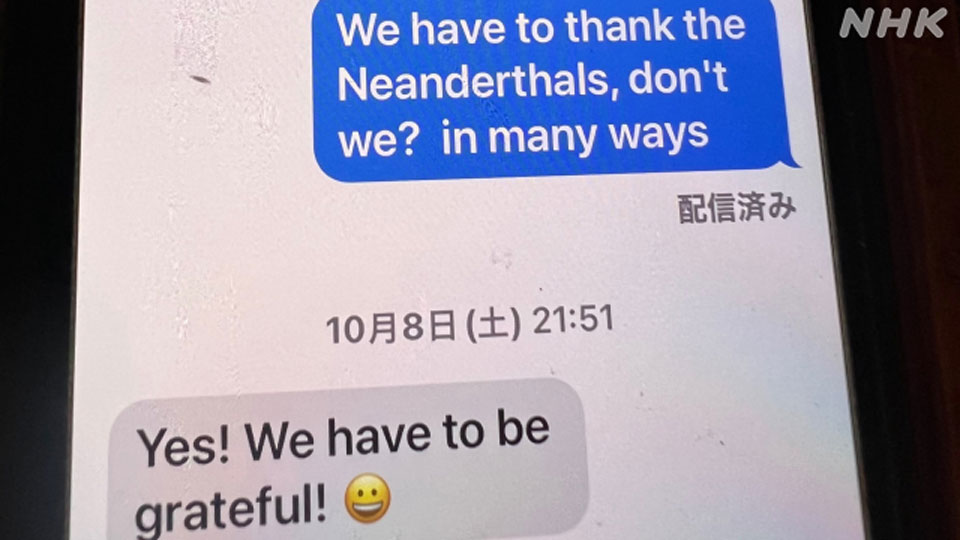
Less than four months after sending his celebratory message, Danjo had a chance to congratulate Paabo in person.
The two men were reunited in Tokyo at the end of January.
Paabo confirmed that things had unfolded as Danjo predicted. To the delight of both men, they were able to take a moment to meditate in the garden of the hotel that hosted their reunion.
Paabo had a chance to express thanks for the encouragement he has received over the years and Danjo was able to address his friend as a Nobel laureate at long last.

After taking time to celebrate and meditate with his friend, Danjo returned to his temple, where he will continue to tell visitors exactly what he told Paabo.
"Find your favorite rock."
Click here for the Japanese version:
https://www3.nhk.or.jp/news/html/20221215/k10013921441000.html

